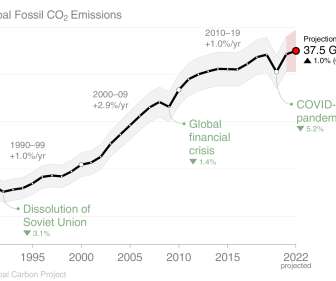Global Carbon Budget 2022: Global fossil CO2 emissions expected to grow 1.0% in 2022
Green Car Congress
NOVEMBER 14, 2022
to 1.9%) in 2022 as the COVID recovery continues amidst turmoil in energy markets. Growth in oil use, particularly aviation, and coal use are behind most of the increase in 2022. Turmoil in energy markets. The turmoil in the global energy markets is affecting the different fossil fuels in different ways. increase in 2021.



































Let's personalize your content